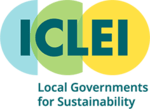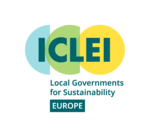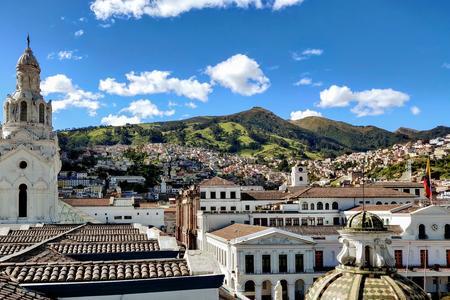UrbanByNature Latin America Hub: Webinar #1 Recap
Did you miss the first UrbanByNature Latin America webinar? Let’s briefly recap what happened:
The first UrbanNyNature (UbN) Latin America webinar addressed step 2 of the UbN programme, and focused on EXPLORING the local framework conditions for implementing nature-based solutions (NBS) and creating greener, more sustainable environments.
Facilitator Bráulio Diaz, Institutional Relations Manager of ICLEI South America, opened the session with a reflection on the outcomes of the UbN Latin America kick-off event and a recapitulation of the seven-step UrbanByNature methodology. He explained how the EXPLORE step centers on understanding the local social network while exploring and identifying relevant strategic objectives inside the city, the policies, and the relevant urban plans in order to understand the role and responsibilities of local urban actors.
As the first speaker, Sophio Konjaria-Christian, CLEVER Cities project Coordinator at the District Council of Hamburg-Harburg, Germany, shared lessons from the CLEVER Cities project and presented different approaches that focused on centralized ludic participation with a panoramic role from the local government. She emphasized that exploring local conditions was a necessary task to advance nature in local communities in Hamburg. Sophio highlighted some of the challenges identified in the city, which include the growing population pressuring existing infrastructure, the cultural diversity of citizens, the high levels of unemployment, the income disparities between families, and the relatively youthful population. Among a variety of co-creation projects in the city of Hamburg, two were particularly well-received: co-planting local vegetation near schools and the co-creation of temporary gardens at refugee residences.
Sophio also summarized that a key success factor was knowing the actors beforehand and fostering a feeling of belonging, shared responsibility and co-creation. Actors of change were previously identified through participation methods such as creative workshops with local citizens and businesses, individual alliances and digital participation tools. ’’There is not only one way to co-create’’‘, she emphasized. While classic participation concepts need to be rethought when targeting the general public, it is also important not to overwhelm participants with too many initiatives at the same time.
The second intervention came from the city of Buenos Aires, Argentina, a committed member of the UbN Latin America Hub. Teresa Verellen, Coordinator of Cooperation Projects in Nature-Based Solutions, General Directorate of Urban Anthropology of the Secretary of Urban Development in Buenos Aires, explained how to implement an anthropological focus in the promotion of nature-based solutions in Buenos Aires. After introducing the city’s context, Teresa presented the multiple projects that the city carried out in the last 4 years to increase green spaces on demand. Tailoring to the demands of the local community, these projects were meticulously planned from the bottom up, which included aspects such as the use of native vegetation as air filters and for aquatic ecosystem restoration. Her colleague Aníbal del Olmo, Urban Anthropology General Director in Buenos Aires, emphasized the importance of 1) involving social actors in all phases of the projects and 2) basing projects on urban data generation from an environmental, gender, and diversity perspective. Through identification of local actors and neighborhood-level collection of visions and expectations through interviews and surveys, design propositions emerged that encompassed topics such as the selection of tree species and improvement of night security.
The goal of using a co-creative and participatory approach in Buenos Aires is to empower the community before and after the intervention and improve the sense of belonging and care. The city has published methodologies and tools for an increasingly inclusive and diverse city, which can be applicable to other cities (available in Spanish only). They stressed that ‘’the social transition to green and blue always starts in the community’’.
In the second regional intervention coming from UbN Latin America member Guadalajara, Mexico, Erika Fresco, Head of the local Sustainability Department, presented a social perspective to analyze urban heat islands. After introducing the city’s context, Erika highlighted different challenges such as the disparity in vegetation between city areas, the lack of equitable access to green space, the change of land use, and the high rates of deforestation and urbanization. In recent years, the city has started an exploratory policy called ‘Guadalajara Ciudad Fresca’ (Fresh City Guadalajara) to determine reasons for temperature ranges and urban heat islands. From the study, the lack of green spaces around risk areas was identified as the main cause for these issues. Aiming to reintroduce vegetation and improve ecosystem services, the city carried out a tree census and developed tools for tree trimming and guidance for suitable tree species for different areas. Besides making this information available through the MAPAGDL tool, Guadalajara has involved the local community by communicating public policies in schools and creating capacitation events. ‘’The goal is to make environmental information public, so that we can get closer to the citizens’’, Erika shared.
During the discussion round, Aníbal highlighted again the importance of community participation to tackle environmental issues. Bráulio, the moderator, asked the panelists how to make such actions more sustainable and prosperous in the long-run, after 4-year political terms are over. Erika answered that capacitation and knowledge of the communities is key. When the community understands the benefits of environmental measures, the solutions go beyond the political term, since the community starts having requirements for local governments to move in a certain environmental direction. Teresa added that many of the municipality’s successful projects emerged from demands of the population itself. Sophio shared that the lesson learned for Hamburg is to accept that things might not work at the first try, and that they need to listen to local agents in order to cultivate a sense of belonging.
The webinar recording is available on the CLEVER Cities Youtube Channel. For more information on upcoming events and to receive our monthly UrbanByNature Digest, fill out the UrbanByNature registration form.
The next UrbanByNature Latin America webinar will take place on 11 August and focus on step 3 / PRIORITISE of the UbN methodology - stay tuned and thank you for joining us!
Related Hubs

Our partners












The UrbanByNature programme is funded by the Horizon 2020 Framework Programme of the European Union under Grant Agreements No. 730222 and No. 776604. It has received funding for an update by the Horizon Europe Programme under the Grant Agreement No 101003818. The sole responsibility for the content of this website lies within UrbanByNature and in no way reflects the views of the European Union.
